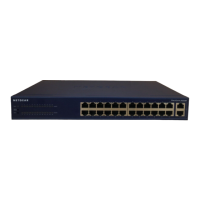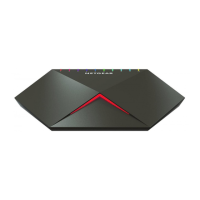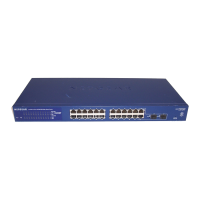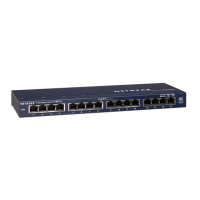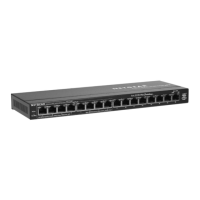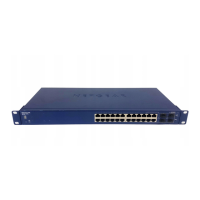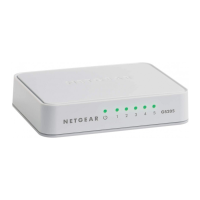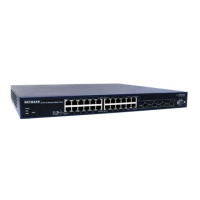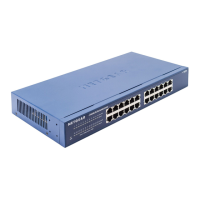Configure System Information
125
S3300 Smart Managed Pro Switch
a. Specify the Remote IP Address of the TFTP server on which the snooping database
is stored when Remote is selected.
b. S
pecify the Remote File Name of the DHCPv6 snooping bindings database in which
the bindings are stored when Remote is selected. The Remote File Name can be 1
to 32 alphanumeric characters.
3. In the W
rite Delay field, specify the maximum amount of time to wait between writing
bindings information to persistent storage. The Write Delay range is 15 to 86400 seconds.
The default is 300 seconds.
The delay allows the device to collect as many entr
ies as possible (new and removed)
before writing them to the persistent file.
4. Click the Ap
ply button to send the updated configuration to the switch. Configuration
changes take effect immediately.
5. Click Canc
el to cancel the configuration on the screen and reset the data on the screen to
the latest value of the switch.
DHCPv6 Snooping Statistics
Use this screen to view and clear per-interface statistics about the DHCPv6 messages
filtered by the DHCPv6 snooping feature on untrusted interfaces.
To view and clear the DHCPv6 snooping statistics:
1. Select System> Services > DHCPv6 Sn
ooping > Statistics.
2. Click Clea
r to clear all interfaces statistics.
3. Click Refresh t
o refresh the data on the page with the latest information on the switch.
The following table describes the DHCP snooping statistics.
Table 44. DHCPv6 snooping statistics
Field Description
Interface The untrusted and snooping-enabled interface on which statistics are displayed.
MAC Verify Failures The number of packets that were dropp
ed by DHCPv6 snooping because the
source MAC address and client hardware address did not match. MAC address
verification is performed only if it is globally enabled.
Client Ifc Mismatch The number of DHCPv6 messages that we
re dropped by DHCPv6 snooping
based on the source MAC address and client hardware address verification.
DHCPv6 Server
Msgs Received
The number of DHCPv6 server messages ((DHCPOFFER, DHCPACK,
DHCPNAK, DHCPRELEASEQUERY) that have been dropped on an untrusted
port.
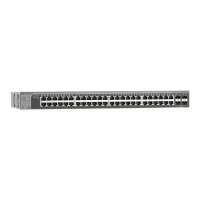
